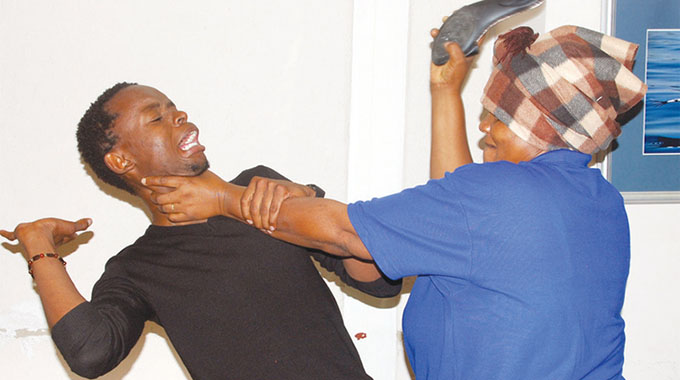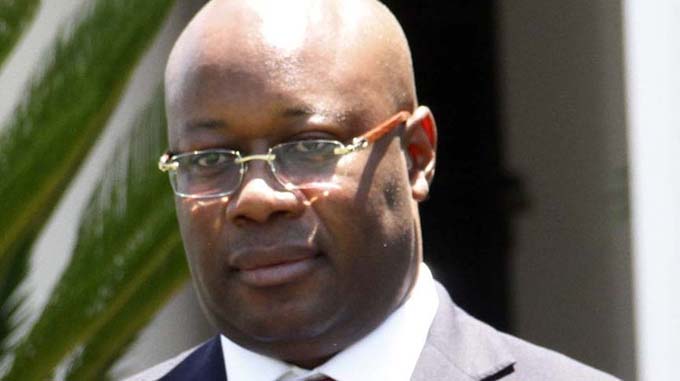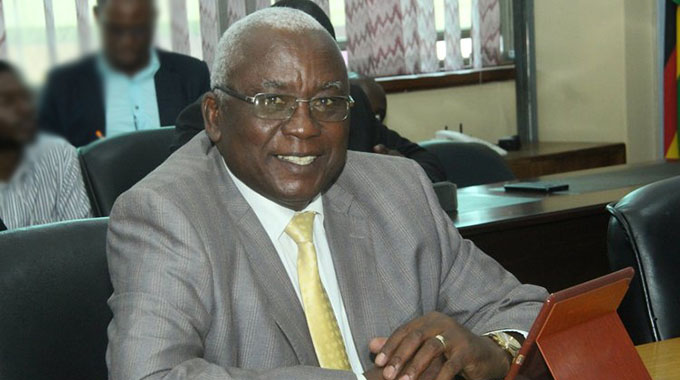GBV: Why men remain silent

Tanaka Mahanya Features Writer
In most parts of Africa, there is a subsisting traditional norm that recognises men as family heads, stronger and subtly dominating partners in nearly all domestic contexts.
From this patriarchal background, men are assumed to be aggressors or hostile, implying women as customary victims, who can be taken advantage of by men. However, times have changed in contemporary times with some women victimising men in gender-based violence.
Anyone could be a victim of domestic violence because it can happen in every community and occurs across socio-economic, ethnic, racial and educational background.
The Domestic Violence Act 14 of 2006 (Chapter 5: 16) notes that domestic violence includes physical abuse, domestic, sexual, emotional, verbal, psychological and economic abuse, intimidation, harassment, stalking and malicious damage of property.
On April 18, this year, The Herald reported that in 2016 about 1 993 men reported cases of domestic violence perpetrated against them, and in 2017 the number of men who reported these incidences increased to 2 461.
Some researchers believe the actual number of male victims is likely to be greater than law enforcement statistics suggest due to the high number of men, who do not report their abuse.
The reason why men do not report domestic violence is because of fear of criticism from society, since they are viewed as heads of the family in patriarchal societies, hence confessions on abuse will bruise their ego.
Gender-based violence is mostly considered a private matter and stigma prevents people from reporting. As a result, among those living in protracted displacements, despair and fear can exacerbate matters.
“I’m not a victim, she’s an abuser” is a statement that is mostly used by male victims of domestic violence, because of power relations that are economically and power driven.
A 35-year-old Guruve man narrated how his wife got a job as a manager at a farm. He says just because he is unemployed, his wife does not respect him, and she always shouts and rapidly beats him claiming that he does not economically provide for the family. He has not opened up to his family, because he fears that he will be called “tete” since that is what men facing domestic violence in society are called.
It can be particularly hard for men to admit that they have been the victims of gender-based violence. Some male victims of domestic violence have been taunted and mocked by acquaintances for “not standing up” to their perpetrators, and they can face disbelief when they tell their stories.
Unfortunately, men are almost equally as likely as women to be assaulted by a partner. Further, men don’t have access to the same level of basic community empathy, sympathy, or support that women typically receive by nature of their gender.
The courts have adopted the approach that one primary objective of the Domestic Violence Act [Chapter 5:16] is to offer protection to women facing domestic violence from their abusive spouses, given that such harmful behaviour may escalate and ultimately pose a threat to life.
However, the document tends to neglect gender-based violence towards men since its main objective is protection of women from violent men, yet in actual sense, women are potential abusers as well. This restricts men from reporting gender-based violence because they believe their cases will be ignored and taken for granted.
Statistics from the National Coalition Against Domestic Violence (NCADV) (2015c) indicated one in three women and one in four men have experienced some form of physical violence; and one in five women and one in seven men have experienced some form of severe physical violence.
In an interview with The Herald, Traditional Medicines Practices Council (TMPC) chairperson, Sekuru Friday Chisanyu said men do not usually report domestic violence because they fear that their reputation will be ruined by reporting such cases.
In African Religion, he said, women are taught to be submissive to their husbands, indicating that, men are the heads of the families, therefore, they deserve respect from their spouses, hence the other reason why reports on domestic violence against men are lesser than those for women.
Domestic violence comes at a high economic and social cost.
While domestic abuse strikes couples of all races, religions, socio-economic status, and sexual orientations, risk factors for men or women becoming victims or abusers include poverty and lack of job and educational opportunities.
Witnessing family violence as a child leads to a low sense of self-worth, and attitudes of male domination and substance abuse.
To quote Lundy Bancroft “An abuser can seem emotionally needy. You can get caught in a trap of catering to them, trying to fill a bottomless pit. But they are not so much needy as entitled, so no matter how much you give them, it will never be enough. They will just keep coming up with more demands because they believe their needs are your responsibility, until you feel drained down to nothing.”









Comments